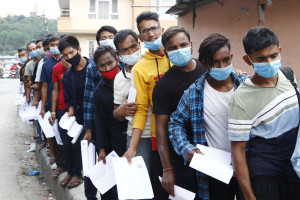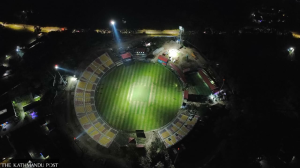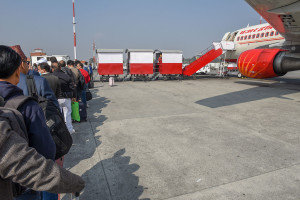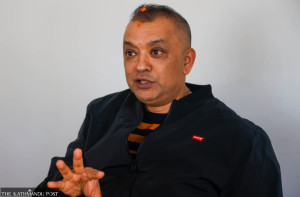Money
Hong Kong’s Silver Heritage to run Shangri-La casino
The government is likely to issue approval to Hong Kong’s Silver Heritage Limited to run Shangri-La casino housed at Shangri-La Hotel & Resort.
According to the Department of Tourism, a proposal of the company, which plans to invest over Rs 1billion, has been forwarded to the Company Registrar’s Office.
Silver Heritage has operations across the Asia Pacific, with equity ownership in casino licenses and licensed gaming operations. It has projects running in India, Vietnam and the Philippines.
“The company has met all the requirements,” said Tulasi Gautam, director general of the Department of Tourism. “After a joint-venture company is registered, we will forward the company’s proposal to the Tourism Ministry for its final approval.”
Earlier, Malaysia-based Star Management had operated the Casino Shangri-La, but was forced to permanently shut down the gaming house over labour unrest. Star had been operating the casino under a lease agreement with the hotel since December 2010.
The Tourism Ministry had authorised Gilt International to operate Casino Royale housed at Yak & Yeti hotel. However, last Friday, the police, at the orders of the Home Ministry, shut down the gaming house after it failed to clear taxes.
The government is making efforts to streamlining the operation of casinos, habitually defaulting taxes and disregarding the rule barring Nepalis from entry. On April 19, all the casinos in Nepal were declared illegal as none of them paid their outstanding royalty dues and obtained new operating permits as per the new regulation.
An estimated 3,500 employees were out of their jobs after 10 casinos—eight in Kathmandu and two in Pokhara—were told to shut down.
However, the government has recognised casino as an important product to attract tourists and creating jobs, said Gautam. “As casino is one of the major tourism products, we want to make the operators to become more competent and ensure the product are of international standard,” said Gautam.
He said the government is ready to address the difficulties faced by the operators and could amend some of the clauses of the regulation.
Nepal’s casinos were beaten up by the stringent new regulation that came into effect on July 16, 2013.
The Financial Bill 2013-14 had doubled the royalty amount that casinos and electronic gaming houses (mini casinos) have to pay the government. Under the bill, a casino is required to pay Rs 40 million and electronic gaming houses Rs 30 million annually.
Similarly, casinos are required to have a paid-up capital of at least Rs 250 million, while the paid-up capital for electronic gaming houses has been fixed at Rs 150 million. The application fee has been set at Rs 500,000 and Rs 200,000 for casinos and electronic gaming houses, respectively.
However, following casino operators’ complaints that the fees were too high to run their business, the Financial Bill 2014-15 slashed the royalty amount to Rs 30 million from Rs 40 million. The fee for electronic gaming (mini-casino) was reduced to Rs 20 billion from Rs 30 million.
On November 23, an Industrial Promotion Board (IPB) meeting chaired by Industry Minister Mahesh Basnet decided to recommend to the Cabinet to recognise casinos as an industry by publishing a notice in the Nepal Gazette.




 16.12°C Kathmandu
16.12°C Kathmandu














